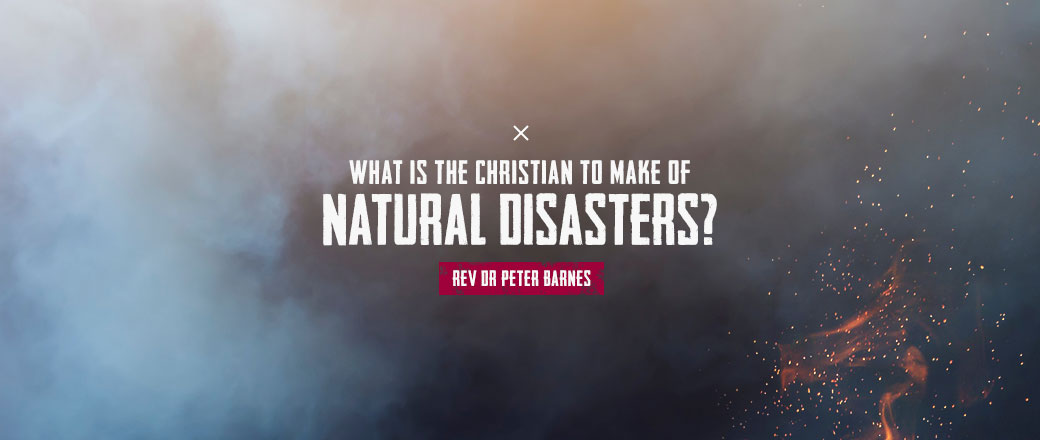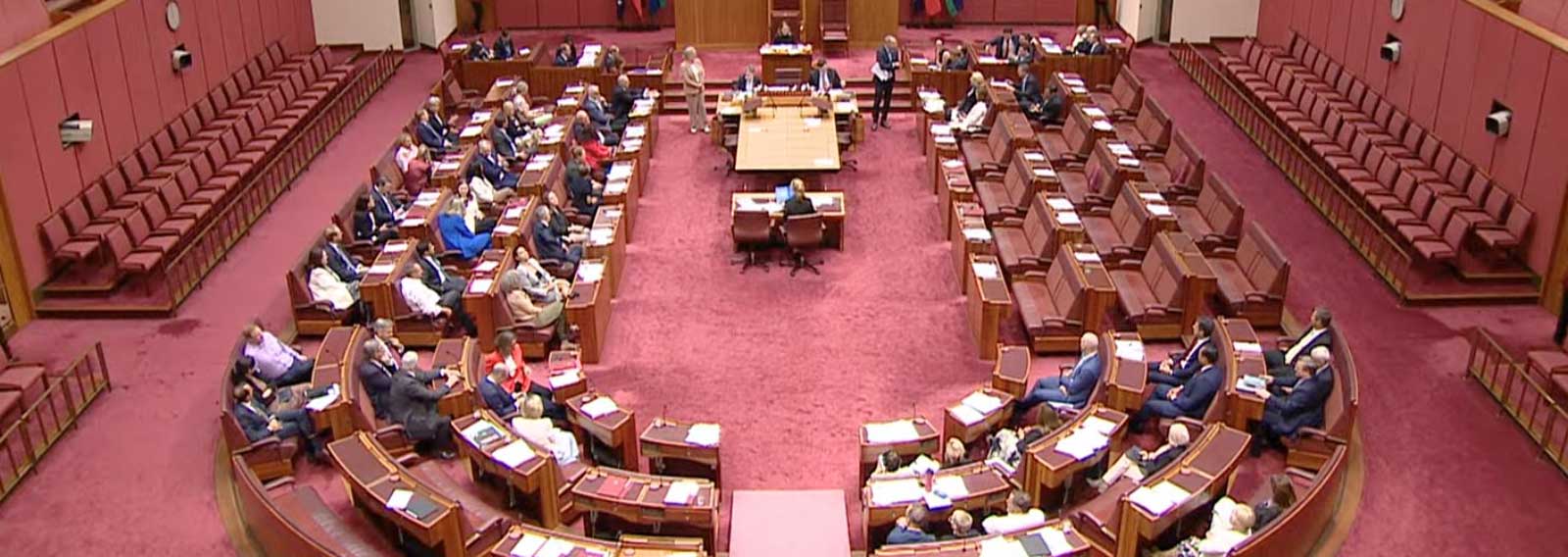Some readers may have struggled with the drought for years, and now, especially in NSW and Queensland, may be confronted with the more immediate threat of fire. Television brings the story to the wider population, but it tends to have a deadening effect too. To watch uncontrolled fire for a minute, then sit through an advertisement for something one does not need, and then, worse, have to endure an ad for Bride and Prejudice, would desensitise anyone’s moral sensibilities. Given all that, what is the Christian to make of what we call natural disasters?
1. We are to do good to our neighbour
The first task of the Good Samaritan was not to provide the battered Jew with a tract which explained clearly the way of salvation (Luke 10:25-37). Salvation is more important than physical well-being, but all things must be done in the right order and the right proportion. What is more important is not necessarily what is most immediate. The Old Testament saints were told: ‘You shall love your neighbour as yourself’ (Lev.19:18), and this is carried through into the New Testament (e.g. Matt.22:34-40). In circumstances of human suffering and disaster, Christians are called upon simply to be those who love their neighbours as themselves. That is God’s first call on us.
2. We are to recognise that God is sovereign
Because God is sovereign, nature is under His control. As Calvin puts it: ‘it is certain that not one drop of rain falls without God’s sure command’. God is not just in control of the good things of life but all things. Not a sparrow falls to the ground apart from our Father’s will (Matt.10:29). If there is a calamity in a city – or in the country, for that matter – the Lord has done it (Amos 3:6). He is the one who says: ‘I form the light and create darkness, I make peace and create calamity; I, the Lord, do all these things’ (Isa.45:7). Hence we are to accept adversity as from the hand of God (Job 2:10), and, in so doing, we may even be able to rejoice in it (Habakkuk 3:17-18). If nothing else, the drought and the fires are yet another reminder to us that we are not masters of all creation. We ought to have a renewed sense of our humble dependence on God in all of life.
3. We must acknowledge that sin has consequences
This is the difficult part for those who think God would not harm a fly. Because of sin, the creation as a whole is cursed (Rom.8:19-25). And because God desires our holiness above our immediate happiness, He chastens His people. One of the ways He did that in the Old Testament was through withholding rain – the heavens over Israel’s head would be bronze, and the land would suffer drought (Deut.28:12, 23-24). In later parts of the Old Testament the prophets would point out this unpalatable truth (e.g. 1 Kings 17:1; Hag.1:3-11; Jer.3:3).
Many Christians are quick to point out that this applies to Israel as God’s covenant nation, not Australia. True enough, but God called the pagan nations to account in Amos’ day (Amos 1:1-2:3), and the God of the New Testament chastens His own people (Heb.12:3-11). In fact, judgment begins with the household of God (1 Pet.4:17). Because the revelation is greater and clearer, the judgment for rejecting Christ is more fearsome than it was before the coming of our Lord (Matt.11:20-24; Heb.3:1-4; 10:25-29) – contrary to public opinion as mediated through television and radio breakfast shows.
4. We cannot easily read God’s providences
All this does not mean that we can easily read off God’s will from the providences. Jesus tells us to love our enemies, bless those who curse us, do good to those who hate us, and pray for those who persecute us. Why? Because that is a pale reflection of God’s love to all: ‘He makes His sun rise on the evil and on the good, and sends rain on the just and on the unjust’ (Matt.5:45). Jesus specifically warns us against falling for the line that those who suffer the most are those who have sinned the most (Luke 13:1-5).
5. In all things, repent and believe the gospel
Nevertheless, for all the warnings about misjudgement, it is Jesus Himself who tells us that in considering disasters, we are to repent or we will all likewise perish (Luke 13:3, 5). Droughts and bushfires are to jolt us to remember the judgment to come. God does not afflict willingly (literally, ‘from the heart’), nor does He take any pleasure in the death of the wicked (Lam.3:38; Ezek.33:11). But He is holy, He does judge, and He does chasten.
It is sobering to remember the words and deeds of the fiery Presbyterian, John Dunmore Lang in 1838. In June of that year, some 28 aborigines, including women and children were massacred at Myall Creek, west of Inverell in northern NSW. 15 November 1838 twelve men were tried for the massacre of at least 28 aborigines, including women and children, at Myall Creek, west of Inverell in northern NSW. Twelve men were tried but exonerated, but a second trial was ordered and on 18 December 1838 six white men and one Afro-Caribbean were hanged for their roles in the gruesome murders. It seems that the ring-leader, John Fleming, escaped, and later became a magistrate.
Before the hangings, the Governor, Sir George Gipps, had set aside Friday 2 November 1838 as a day of fasting and humiliation on account of a long-term drought. Lang, however, used the occasion to raise other issues, notably the European ill-treatment of the aboriginal inhabitants of the land. He proclaimed that the aborigines were ‘bone of our bone and flesh of our flesh – formed originally after the image of God’. He therefore called on the colonists to humble themselves because ‘every district of this land of our adoption has been defiled with the blood of these innocents’.
Theology in thirty-second sound bytes tends to be rather limited, and prone to error, but the blood of innocents still cries out.




















